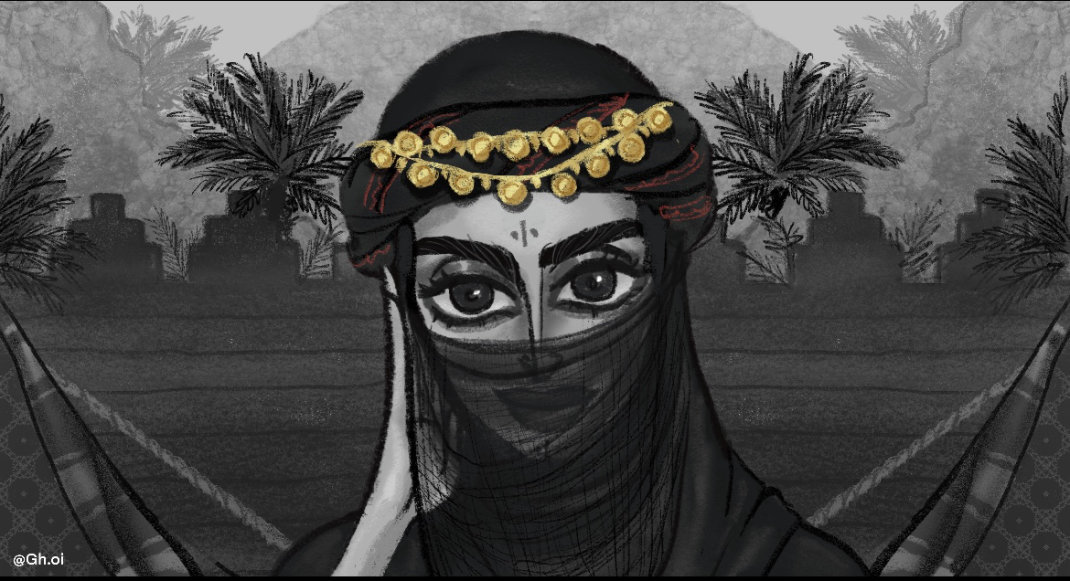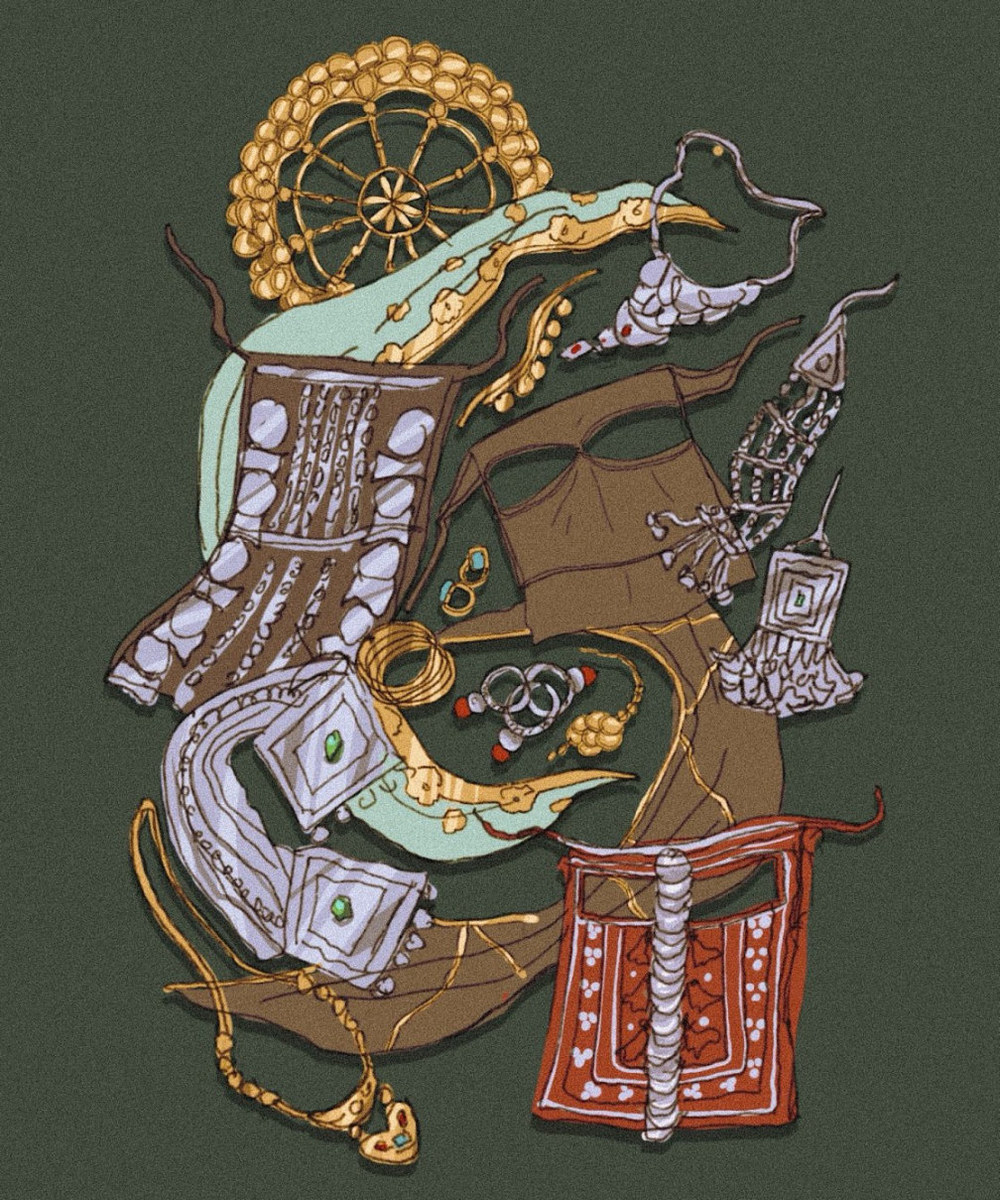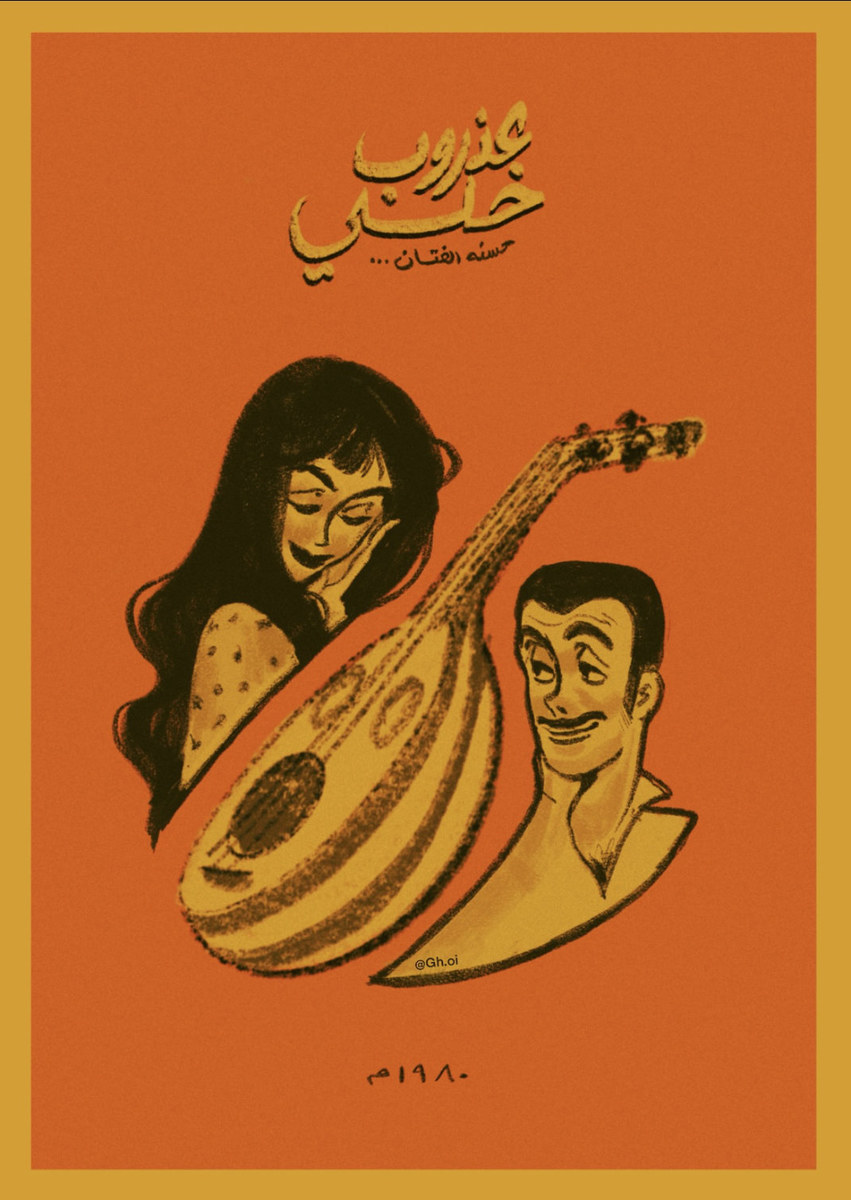RIYADH: Timeless Arabic songs and heartfelt poetry provide the inspiration for Ghada Al-Shammari’s digital art, which showcases the Kingdom’s culture and society.
Al-Shammari's first artwork in 2017 was inspired by a popular Saudi song by Majed Al-Esa called “Hwages,” which means “concerns” in English.
The music video provided a comment on society by using satire, showcasing women driving cars, skateboarding, and playing basketball — activities that at the time were not easily accessible for women.
“I liked how they portrayed women in the traditional Saudi abaya, which motivated me to draw it,” Al-Shammari told Arab News.
For one of her artworks Al-Shammari was inspired by a poem by literary icon Prince Badr bin Abdul Mohsen and popularly performed by the late Saudi singer Talal Maddah.
The drawing depicts a man glancing at a woman who has her eyes downcast, with an oud instrument between them, and the 1980 song title “Forgive Me” written in Arabic text above the illustration.
The Saudi artist said that she tries to capture the poet’s feelings with her artwork, adding: “Romantic songs with descriptions of the poet’s beloved have been particularly inspiring for me.”

Al-Shammari draws inspiration from the beauty within the Kingdom’s culture. Many of her artworks depict women wearing traditional Najdi-style dresses and gowns with draping silhouettes and glimmering gold headpieces and turbans.
The men are depicted with striking features and wearing traditional garments like the head coverings called ghutra or shemagh, and bisht, the men’s cloak commonly worn in Saudi Arabia and other Gulf countries.
“Saudi culture and traditions have significantly impacted my work. Growing up, I used to think of Saudi Arabia as just what was around me in terms of environment, customs, and traditions,” Al-Shammari said.
When she moved from her hometown of Hafar Al-Batin to the capital Riyadh, Al-Shammari said her friendships and acquaintances showed her a new world of ideas that elevated her artistic vision.

She added: “They shared stories about their region, important landmarks, and fascinating tales that were unique to their areas. This motivated me to learn more about my country and enjoy drawing the diversity and differences I discovered in my artworks.
“Saudi Arabia is full of exciting things, and its diversity is what fascinates me the most. Each region has its own heritage, traditions, architecture, and unique dialect, which makes me eager to learn more and create works that reflect this beautiful diversity.”
Al-Shammari said she selects particular color combinations to evoke the emotions she aims to convey, opting for brighter colors for her cheerful and vibrant works.

Al-Shammari graduated from the College of Arts and Design at Princess Nourah bint Abdulrahman University with a bachelor’s degree in fine arts.
She added: “Through this specialization, I discovered many artistic and historical aspects, learned about various artists, and got to understand their ideas and philosophies, which transformed my perspective of my work.”
Her love of art began as a child when she would draw characters from her favorite anime and cartoons.
“I started focusing on drawing from an educational perspective at the age of 12 through YouTube tutorials on drawing anime and cartoons, which sparked my artistic journey,” Al-Shammari said.
She added that art is important as it showcases the cultural aspect of a country and its heritage, conveying its history and traditions that help define life in the past and present.
She said: “It serves as a way to preserve and transmit this heritage from one generation to the next, seeking to document knowledge and memories.
“Additionally, from an economic standpoint, art is considered a means to attract tourists interested in discovering the country and its civilization.”
For more information on the artist, visit her Instagram @gh.oi.




























